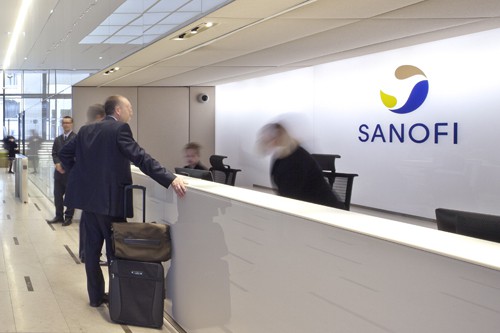
Sanofi is being investigated for manslaughter charges in France relating to side-effects caused by the company’s anti-epilepsy drug Depakine (valproate).
The charges relate to the deaths of four babies in 1990, 1996, 2011 and 2014 whose mothers took Depakine during their pregnancy, according to the French newspaper Le Monde.
Depakine has been marketed by Sanofi since 1967 as an anti-epileptic and bipolar disorder treatment, and has since been associated with foetus malformation and neurodevelopmental disorders including autism and spina bifida.
Birth defects linked to Depakine were first discovered in the early 1980s, although rigorous prescription rules for the drug were only introduced in 2014, according to the BBC.
In a 2017 report by France’s National Agency for the Safety of Medicines (ANSM), between 2,150 and 4,100 children were thought to have suffered severe malformations associated with the drug. This means that women treated with Depakine for epilepsy were up to four times likelier to give birth to a malformed child.
Another study carried out in 2018 by the ANSM and France’s National Health Insurance Fund (CNAM) used the national health data system to identify the incidence of birth defects and development disorders in 1.7 million children born between 1 January 2011 and 31 December 2014. This included 8,848 children who had been exposed to different anti-epileptic drugs, including Depakine, in the womb.
The study found that at the average age of 3.6 years old, children whose mothers had taken Depakine during pregnancy had a four to five times higher risk of developing ‘mental disorders and behaviour’ compared to children whose mothers did not receive an anti-epileptic drug during pregnancy.
The study also identified that the risks of developing these disorders after exposure to other anti-epileptic drugs was ‘much less marked than for valproic acid, with differences depending on the substance’.
Sanofi is already facing prosecution in France over allegedly providing misleading and false information about the drug, which lost its patent in 1998.
The French drugmaker has filed a legal challenge over the allegation and has denied any wrongdoing. It said that it made health authorities aware of the risks associated with the drug when it first became aware of them in the 1980s.
It is not clear if Sanofi will go to trial for the charges, as France’s legal system requires prosecutors to provide specific and sufficient evidence to advance the case.




